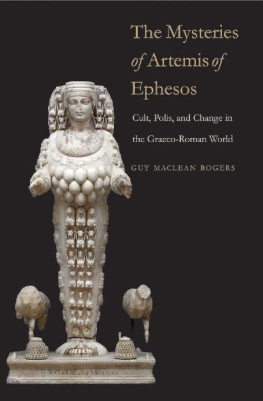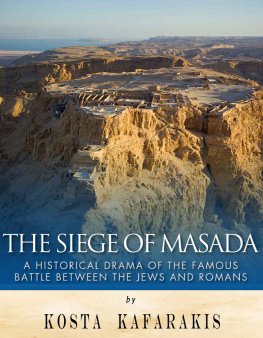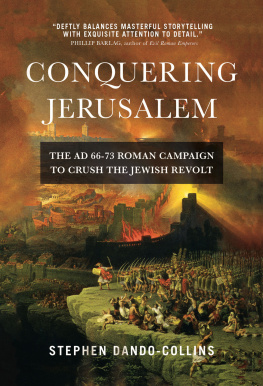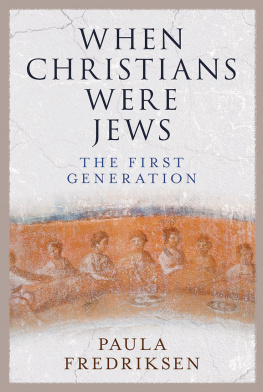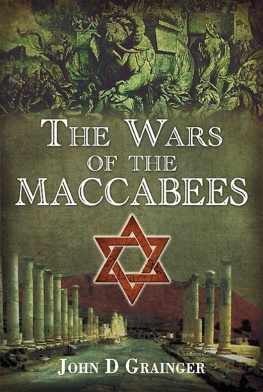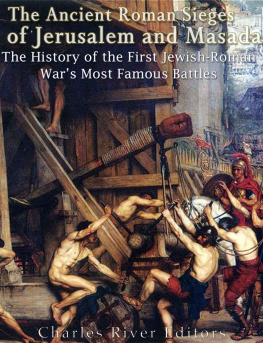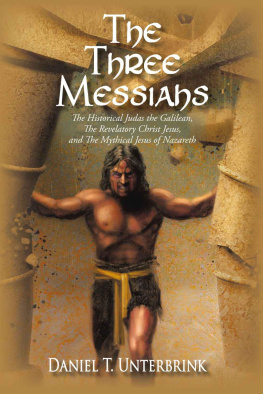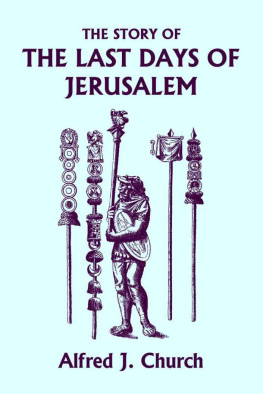For the Freedom of Zion
For the Freedom of Zion
THE GREAT REVOLT OF JEWS AGAINST ROMANS, 6674 CE
Guy MacLean Rogers

Published with assistance from the foundation established in memory of Amasa Stone Mather of the Class of 1907, Yale College.
Copyright 2021 by Guy MacLean Rogers.
All rights reserved.
This book may not be reproduced, in whole or in part, including illustrations, in any form (beyond that copying permitted by Sections 107 and 108 of the U.S. Copyright Law and except by reviewers for the public press), without written permission from the publishers.
Yale University Press books may be purchased in quantity for educational, business, or promotional use. For information, please email (U.K. office).
Set in Adobe Garamond type by Westchester Publishing Services.
Library of Congress Control Number: 2021941137
ISBN 978-0-300-24813-5 (hardcover: alk. paper)
A catalogue record for this book is available from the British Library.
This paper meets the requirements of ANSI/NISO Z39.48-1992
(Permanence of Paper).
Dedicated to the Memory of
Fergus Millar
A Mans a Man for a That
Contents
John of
Gischala
Cometh
the Hour
Acknowledgments
I would like to thank Jennifer Banks, senior executive editor of Yale University Press, for the many contributions she made to this project. The suggestions Jennifer made for how to improve this book were thoughtful and perceptive. I am fortunate to have worked with such an intelligent and sensitive editor. I would also like to express my thanks to the staff at Yale University Press and to Westchester Publishing Services for their work on a large, complex, and difficult manuscript.
Doing the research for this book and then writing up my ideas required time, effort, and perseverance. This book could never have been completed without the love and help of friends, colleagues, and family. I can never repay Pam Wiener, David Eisenberg, and Jon Imber for their selfless friendships. In Israel, Hannah Cotton, Jonathan Price, and Ben Isaac generously shared their scholarly expertise with me. Of course it should not be assumed that these distinguished scholars agree with any of the arguments or conclusions of this book.
The gods smiled upon me the night I met Dr. Nancy Thompson at the National Archives in Washington, DC, nearly 30 years ago. I have been honored to share my life with Dr. Thompson from Litchfield County to Riverside Drive to the Aventine Hill. I am grateful to Baxter, Wobble, and Fidget for making me laugh throughout 2020.

This book is dedicated to the memory of Sir Fergus Millar.
I met Fergus Millar by accident. In 1977 I was studying Classics at the University of Pennsylvania when I was awarded a Thouron Fellowship to continue my studies in Great Britain. I did not know a soul in Britain and had no idea where to go or even how to apply to universities. A friend recommended that I write to the Roman historian Robert Browning at the University of London to see if he could help.
I wrote to Professor Browning and was delighted to receive a quick response. He politely told me that it was impossible for me to study at his college (Birkbeck), which was for mature students, but that I should write to his friend, Professor Fergus Millar, who was teaching across the street at University College London (UCL), to see whether it would be possible for me to attend UCL.
I had no idea who Fergus Millar was. I wrote anyway and I immediately got back a short handwritten letter. I had trouble deciphering what the missive said. But I eventually decided that it offered me a place at UCL to study with Professor Millar. I told my professors at Penn. They were shocked. Did I have any idea who Fergus Millar was? Of course not. They referred me to a recently published book titled The Emperor in the Roman World. That was who Fergus Millar was.
Fergus and I stayed in touch after he went back to Oxford in 1984, and I started teaching at Wellesley College in 1985. In 1987 Fergus visited Wellesley to take part in a colloquium focused on the work of the Harvard sociologist Orlando Patterson about slavery in the ancient and modern worlds. With impeccable courtesy and his usual understated humor, Fergus critiqued Pattersons ideas about how Roman slavery developed and functioned in Roman society. Afterward all of the conference participants enjoyed a convivial dinner together at the Wellesley College Club. It was indeed true that Fergus knew how to disagree in ways that were polite and collegial.
But it would be very wrong to conclude that when Fergus politely disagreed about the answers to scholarly questions, he didnt think that he was right. He was sure of his judgments and he was unshakable, both with regard to scholarship and friendship. If Fergus was in your corner he was there, come what may. The sun would rise in the west and set in the east before Fergus would desert a friend. It was unthinkable. Ferguss personal loyalty and integrity were adamantine.
Conversely, if Fergus thought that the independence of individual scholars or of the humanities in general was under attack he did not hesitate to defend it, no matter what the potential consequences were to his own career. Winston Churchill said that courage was the foremost virtue because it was the one upon which all the others depended. Of Ferguss many virtues, his selfless courage was the one I most admired.
I was honored that Fergus asked me, along with Hannah Cotton of The Hebrew University in Jerusalem, to be the editor of his collected papers. It was a privilege to work with such renowned scholars and in some small way to repay Fergus for everything he had done for me over the years.
Why the gods chose to put Fergus and his strong, wise, and radiant wife, Susanna, in my path I will never understand. Everyone knows what a great historian Fergus was. He changed how we understand the role of the emperor in the Roman world; put democratic politics back into the study of Roman Republican history; sketched out the first mental map (a favorite Fergus word) of the Roman Near East; and projected that map forward to the time of Muhammad. Fergus was and is among the giants of ancient history, a different and worthy successor to Syme. Over the last few years of his life Fergus took to calling himself an extinct volcano. Some volcano.
And yet, Fergus told me point-blank in 1979 that what really mattered was character. Brilliant guys are a dime a dozen, he said. Character is what counts. How and why Fergus became a man of such generosity, integrity, and courage I do not know, and it does not matter to all of the people whom he so profoundly and positively affected over the decades. There will never be another Fergus Millar.
Thank you, Fergus, for everything you gave to us. A Mans a Man for a That.
Guy MacLean Rogers
Villa dei Gatti
5 September 2020
Maps

MAP 1. Herods Kingdom, including major benefaction sites. A.D. Riddle, RiddleMaps.com.

Next page

